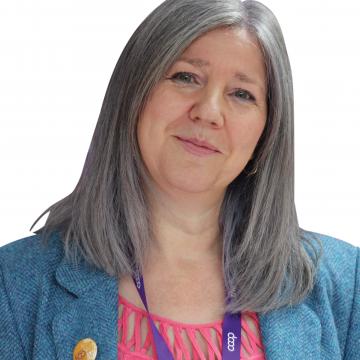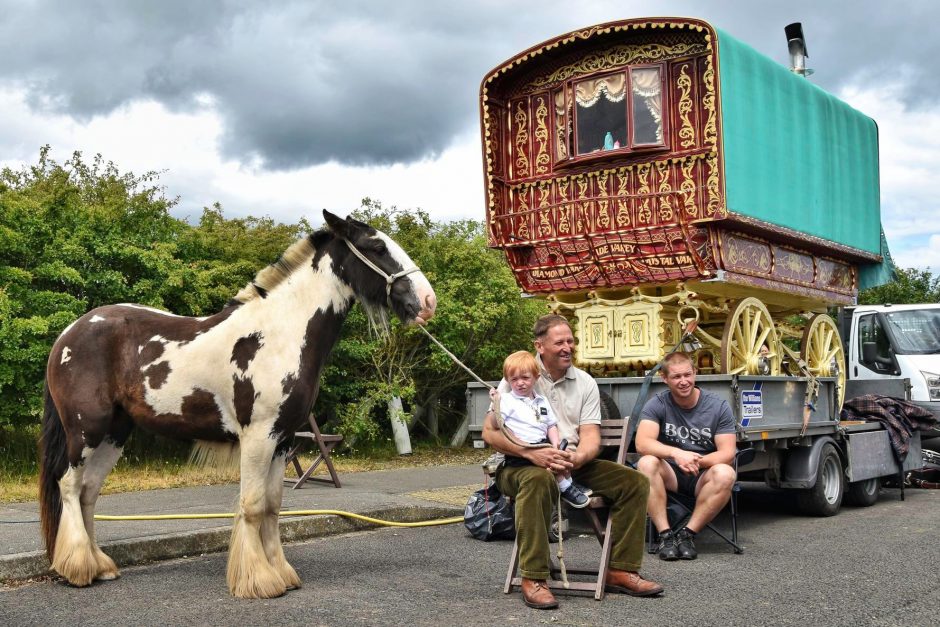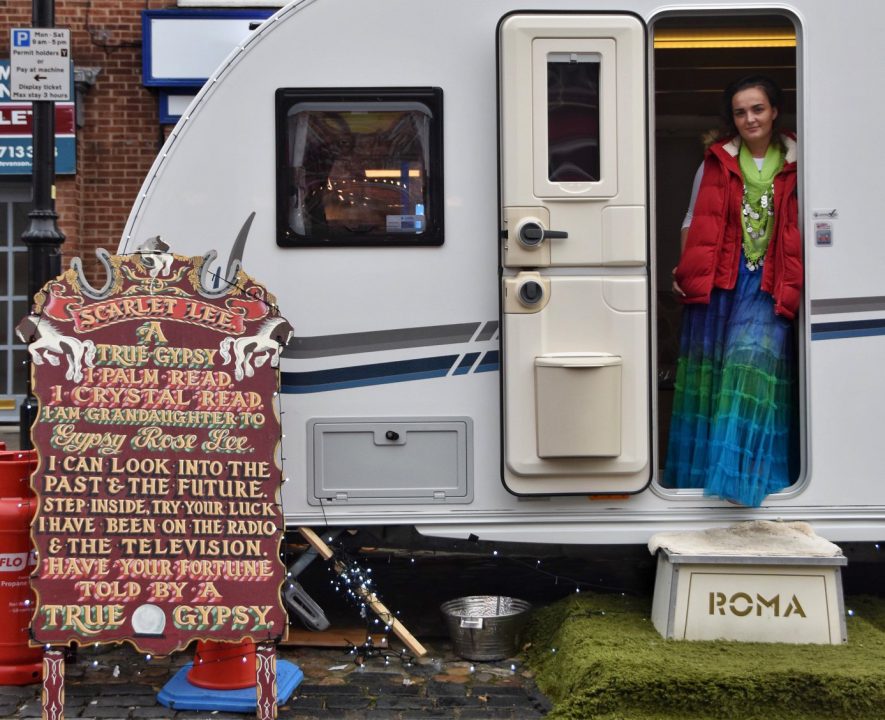Roma and Traveller communities face some of the most severe health inequalities and poor life outcomes in the UK. They are most at risk of low educational attainment, live 10-12 years less than the wider population and suffer from higher rates of infant mortality, maternal death and stillbirths. These grim statistics were made clear in research published by the EHRC – Equality and Human Rights Commission – in 2015. Yet prejudice against travellers remains pervasive and problematic.
It has been described by the Commission for Racial Equalities as “the last acceptable form of racism.”
Last year, Home Secretary Priti Patel came under fire for branding Travellers ‘criminal and violent’ – just before launching a government consultation with the aim of strengthening police powers to tackle unauthorised encampments. In 1994, it was legislation by a Conservative government which removed the previous duty on local authorities to provide sites for travellers. In recent years, local authorities have reduced even further the number of places where they can legally pitch. In June 2020, a total of 22 outside of London still had anti-encampment injunction orders in place.
Around 20% of travelling households in the UK currently live on unauthorised encampments or developments, largely because of the chronic shortage of sites and stopping places.
Long-time activist Cheryl Barrott, from an Irish Traveller background, is hoping the co-operative movement can do more to tackle the immense challenges and inequalities faced by her community.

A director of Co-operatives UK, she is a former Co-op Party NEC member, sits on the Steering Committee of the Party’s (dis)Ability network and was instrumental in setting up the Party’s BAME network with the late Chris Herries, much-missed chair of the Co-op Party. Cheryl is also a co-founder of Change AGEnts, a co-operative network empowering older people. Patel’s consultation was, she says, “not fit for purpose”.
She is concerned the government’s decision to enable police to confiscate the homes of anyone whom they suspect to be trespassing on land with the purpose of residing on it could lead to the criminalisation of Traveller communities – and believes such policies threaten the existence of nomadic communities: “Any policy is about regularising, putting people in bricks and mortar. There are many fewer pitches than there are people who need to pitch. People are forced to go on unregulated sites.”
At 60, Cheryl has four children, 16 grandchildren and four great grandchildren, and is immensely proud of her family history.
“My life was shaped within the culture. My great-grandfather was a Traveller from Ireland; when his wife died he settled in Sheffield but he used his travelling skills to earn a living as best he could as, amongst other things, an artist and bare knuckle boxer. My dad bought a house in Hillsborough that had been damaged in the Blitz and did it all up but my family was still regarded as a family of outsiders despite the bricks and mortar.”
Both Cheryl’s grandmothers were co-operators and she serves on the board of the Sheffield Co-operative Development Group as well as chairing the Sheffield City Region panel on co-operation. Now retired, she spent many years as a community social worker in Sheffield, working with Somali and Irish communities.

“I was adopted as a fellow nomad and am friends with Somalis from across the UK,” she says. “I understood the idea of having a nomadic family even if you were settled.
“As a Traveller myself, I worked on Irish issues in relation to mental health, was a director of the Irish People’s Forum and in the 1990s campaigned for a culturally specific Irish social worker, which Sheffield City Council eventually agreed to. I then moved into a government programme for older people and was co-founder of a co-op called Change AGEnts, looking at participation and social exclusion.”
These decades of solid experience with under-represented and excluded minorities have undoubtedly shaped Cheryl’s absolute commitment to making life better for Travellers and she would like to see the co-op movement championing the cause of Roma and Traveller communities much more than it currently does.
“The problem is the law and general prejudice against nomadic people, with the establishment wanting to change people rather than lean into their lifestyle and understand it. We are criminalised, we do not have enough places to live and the system itself makes us vagabonds.”
One way of helping, she says, could be the co-operativisation of pitches and the collective buying of suitable land.
“If we can help people to buy land collectively, why not also have the equivalent of a township for Travellers with proper sewage and infrastructure? The problem is NIMBYism. Local authorities have legislation in place and use planning laws to stop people from buying land. We do not want to build pitches in the green belt but there are a lot of former industrial sites which might be suitable.”
There are hopeful signs. Moving For Change is a new network hoping to improve the lives of Roma and Traveller communities across the UK. Its first project is Roadside Futures, funded to the tune of £2m by the National Lottery and supporting members to use their experience to shape policy making, carry out research, deliver campaigns and develop innovative
local projects.
The network is also working in partnership with a Birmingham-based firm of progressive lawyers to assess documents and evidence submitted by local authorities to the courts as well as a number of other organisations including Friends Families and Travellers, York Travellers Trust, London Gypsies and Travellers, Derbyshire Gypsy Liaison Group, the National Federation of Gypsy Liaison Groups and Irish Community Care Merseyside.

Not every local authority is hostile. Sheffield City Council, for example, has two authorised traveller sites with proper sanitation and a community room with opportunities for adult and child learning and health visits. It also has a Gypsy and Traveller Multi-Agency Group bringing together council officers, the NHS, South Yorkshire Police and other relevant agencies to share information on service delivery, procurement and planning. The council also works with the community to raise awareness.
For Cheryl, it is essential that the co-op movement takes a key role in changing lives and combating prejudice.
“The Co-op Party is very supportive and lots of conversations are already happening. At Co-operatives UK we are looking at equalities issues and representation and I have already spoken to the new CEO Rose Marley, which was a very positive experience.
“I often talk about the much-malnourished principle 7, which is care for communities. Helping communities to do it for themselves is something we need to be better at. We have established co-op architecture and infrastructure but we need to add community development to that.”
Cheryl gives the example of co-operative education for people who do not send their children into an actual building, and collective home-schooling following the Irish tradition of hedge schools.
“And then there is health. Life expectancy for Travellers is way below the rest of the population. If you are from an Irish traveller background, no-one mentions the C-word. People are scared to go into hospital and there is no proper access to screening or healthcare for older people, people with
disabilities or children. Social and community worker co-operatives working as a team could change that.
“Activists are trying to do things but we need to be invited into the mainstream. Rather than seeing us as problematic, treat us as a valuable asset. We as a people have protected characteristics under the Human Rights Act – we are not hard to reach but we are easily ignored.
“As a co-operative movement we should be prepared to travel to other places in a non-accusatory way, learn more about each other and be real co-operators, reconciling conflict and being champions for nomadic people. It would solve a lot of problems for everyone by accepting that there are settled people and travelling people and we all have human rights.”